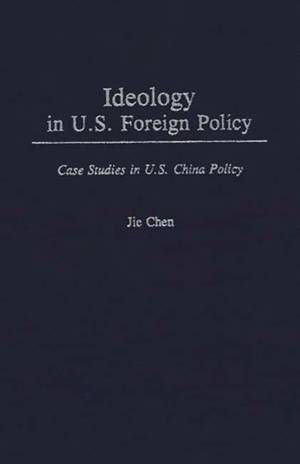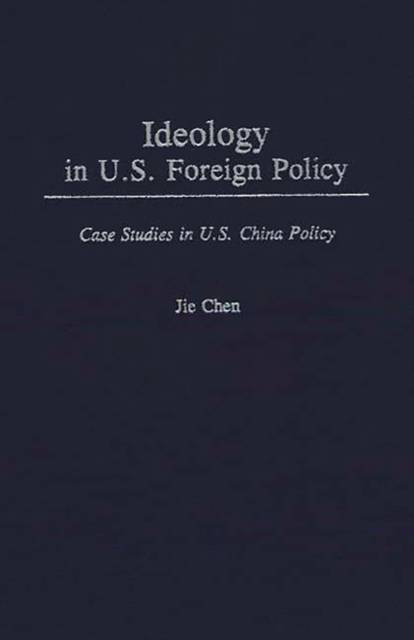
- Retrait gratuit dans votre magasin Club
- 7.000.000 titres dans notre catalogue
- Payer en toute sécurité
- Toujours un magasin près de chez vous
- Retrait gratuit dans votre magasin Club
- 7.000.0000 titres dans notre catalogue
- Payer en toute sécurité
- Toujours un magasin près de chez vous
Description
This book provides an alternative theoretical approach to the study of ideology in U.S. foreign policy, emphasizing the importance of ideology in foreign relations. Unlike traditional approaches, which tend to neglect the variability of ideological influence, Chen's approach postulates a two-step causal relationship that explains changes in the strength of ideology and their influence on U.S. foreign policy. Changes in objective conditions cause changes in the strength of ideology, and these changes, in turn, create fluctuations in U.S. foreign policy.
Chen explores that causal relationship empirically through detailed case studies of U.S. China policy and also, in his concluding analysis, looks at ideology and recent U.S. policies toward Eastern Europe and the Middle East. This book will be of interest to teachers and students of international relations.Spécifications
Parties prenantes
- Auteur(s) :
- Editeur:
Contenu
- Nombre de pages :
- 168
- Langue:
- Anglais
- Collection :
Caractéristiques
- EAN:
- 9780275943271
- Date de parution :
- 22-07-92
- Format:
- Livre relié
- Format numérique:
- Genaaid
- Dimensions :
- 163 mm x 243 mm
- Poids :
- 430 g

Les avis
Nous publions uniquement les avis qui respectent les conditions requises. Consultez nos conditions pour les avis.






